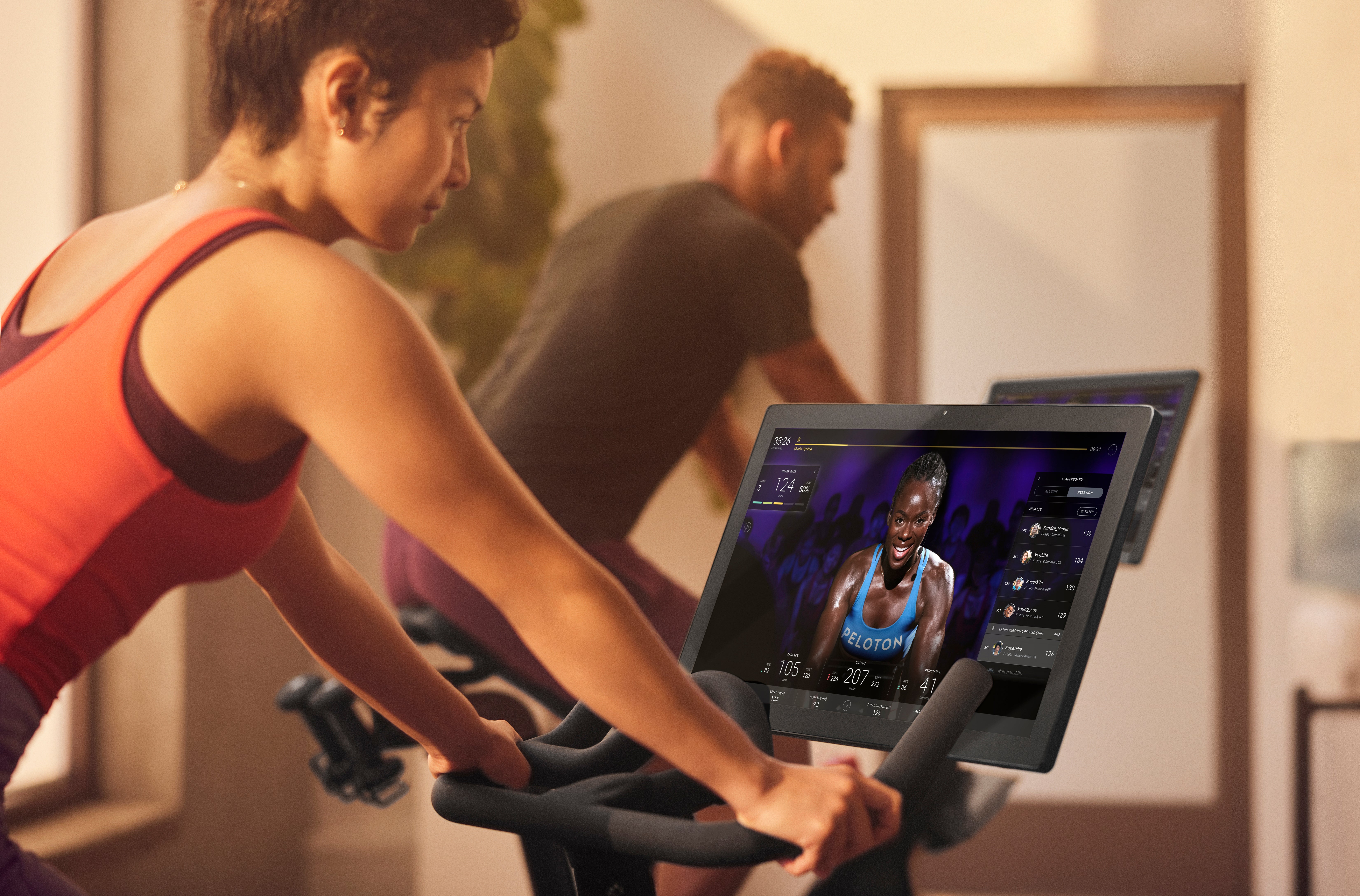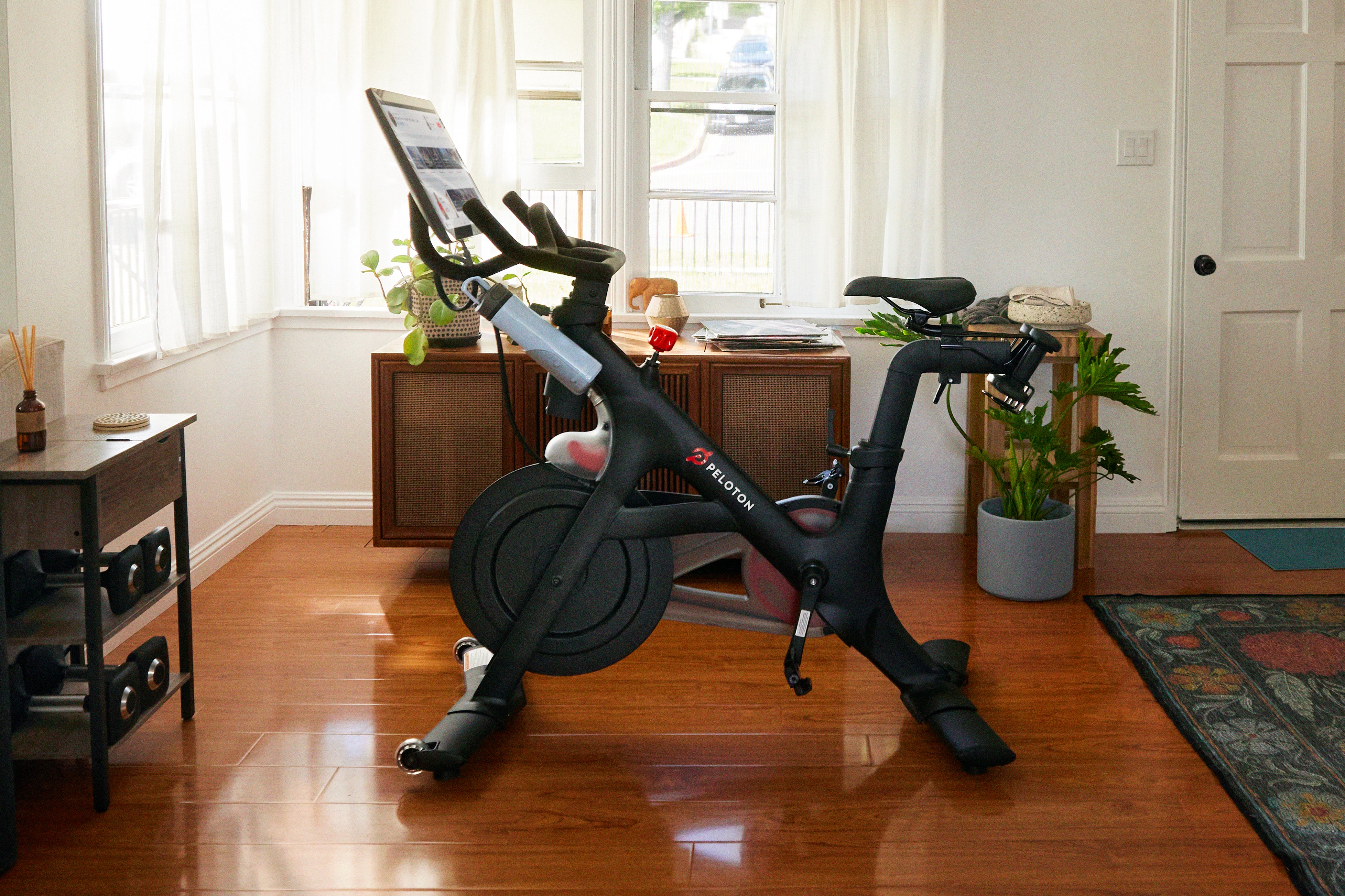How the man behind Peloton went from billionaire boom to bust
After a steep uphill start to its life, John Foley’s home fitness company Peloton became worth billions during Covid. Unfortunately for him and its shareholders, this wasn’t to last long, but his is not the only company to lose out post-pandemic, writes Chris Blackhurst


As calling cards go it’s quite something: “former billionaire”.
That’s how John Foley describes himself. At 53, he’s a byword for what can go wrong in business, satisfying those wise saws about not counting chickens before the eggs are hatched and shares can go down as well as up. Once he was a true world-beater, a stock market darling with Peloton, the at-home fitness company he co-founded and ran for a decade as CEO.
Not anymore. Peloton was valued at $58bn and Foley was worth $1.9bn. Today, Peloton’s market capitalisation is $1.74bn and Foley has revealed his fortune has disappeared. “You know, at one point I had a lot of money on paper. Not actually [in the bank], unfortunately. I’ve lost all my money. I’ve had to sell almost everything in my life.”
What drove the lurching, rollercoaster ride was Covid. Or rather, the outbreak of the virus followed by the discovery of vaccines that caused its end.
Pelton was eight years old when Covid struck in 2020. The concept, of exercising on specially-designed, sleek spinning bikes and joining classes online, was struggling for popular traction. The idea appealed to cosmopolitan types who did not have the time or inclination to attend gyms but that was about its extent.
Matters were not helped when the firm produced an advert showing a woman pedalling furiously to please her husband on holiday with a beach body. But when the world went into lockdown, that was forgotten and Peloton came into its own.
Health club users found themselves without the means to workout. Suddenly, demand for Peloton exploded. It went from catering to a minority to celebrity must-have. The Obamas, Usain Bolt, Sir Richard Branson, Lizzo, Jill Biden… the list of famous customers grew and kept on growing. And because they had them, the rest of us also wanted a Peloton.
The bike was not cheap. It cost more than £1,350 to which was added a £200 delivery charge, £125 for the fitted shoes and £30 a month subscription for the online classes. It also occupied a sizeable chunk of room space.
Still, the orders flooded in. Foley and his colleagues could not believe their luck. Equally, that’s where the problems started.
They struggled to produce the bikes quickly enough. Reports of delays mounted up. They launched an expansion plan, but that could not be ready on time, and only served to store up difficulties for later – should Peloton ever go off the boil.
They found themselves hit by requests for hefty payments for the use of the backing music in the classes.
Technical issues led to the recall of some machines and there were safety concerns.
From receiving rave press, Peloton went to being heavily panned. It was too expensive, delivery was slow, service was poor, and the classes were repetitive.

That was compounded, when in the Sex And The City spin-off series, And Just Like That, two characters had heart attacks riding their Pelotons. The once soaring Peloton share price fell – down a hefty 11.5 per cent after an episode showing one of the heart attacks.
Then, the pandemic was over – and with it, the appeal of Peloton. Gyms reopened and from not being able to make deliveries on time, Peloton found itself with a mountain of unwanted stock. Reselling sites were swamped with folk trying to offload their bikes. Class subscriptions were cancelled.
The company lowered its prices and diversified into selling other exercise equipment. All that did, however, was further diminish Peloton’s remaining upmarket cachet.
Foley left and started an online, bespoke rug manufacturer. He sold not one but two Hamptons mansions. It’s not quite true to say he has no money left – he retains a holiday home and a Manhattan townhouse, and he owns a shareholding in Peloton, plus there’s the rug business. He remains far better off financially than most.
Nevertheless, his rise and fall, and that of Peloton, was spectacular. If it’s any consolation, he was not alone.
Other companies that experienced a meteoric ascent in Covid, only to descend rapidly to a new normal, include Zoom – worth $21.5bn today but $168bn at its peak. At first, Zoom had the market for virtual meetings software to itself, then Microsoft caught up fast with its Teams product. But Zoom remains a solid business – most online meetings either use Zoom or Teams and there is room for them both.
E-commerce and digital platforms enjoyed good pandemics, only to subsequently settle back again. One such was Etsy, supplying goods from artisans. During Covid, people were making handmade and unique products in their own homes and selling them. Similarly, as customers idled away the hours by browsing and shopping online, sales escalated. Etsy hit $35bn on the stock market; today it’s valued at $6.4bn.
E-gaming companies also saw their popularity climb. Along with publishers who sold more books than ever and achieved record profits, game creators had a terrific Covid as people looked to entertain themselves in their homes.
So Foley can take comfort that Peloton, while something of a poster child, was far from unique. Ironically, one of the biggest risers and fallers during and post the pandemic was Moderna, one of those companies chasing the vaccine that signalled Foley’s demise. In the race to develop vaccines, the leading biotech player saw its market capitalisation jump to $172bn. By comparison, if you wanted to buy Moderna today it would set you back just $29bn.
Foley may be the best-known but he is not the only former Covid billionaire. What were those wise saws again? Don’t count chickens before the eggs are hatched and shares can go down as well as up.





Join our commenting forum
Join thought-provoking conversations, follow other Independent readers and see their replies
Comments